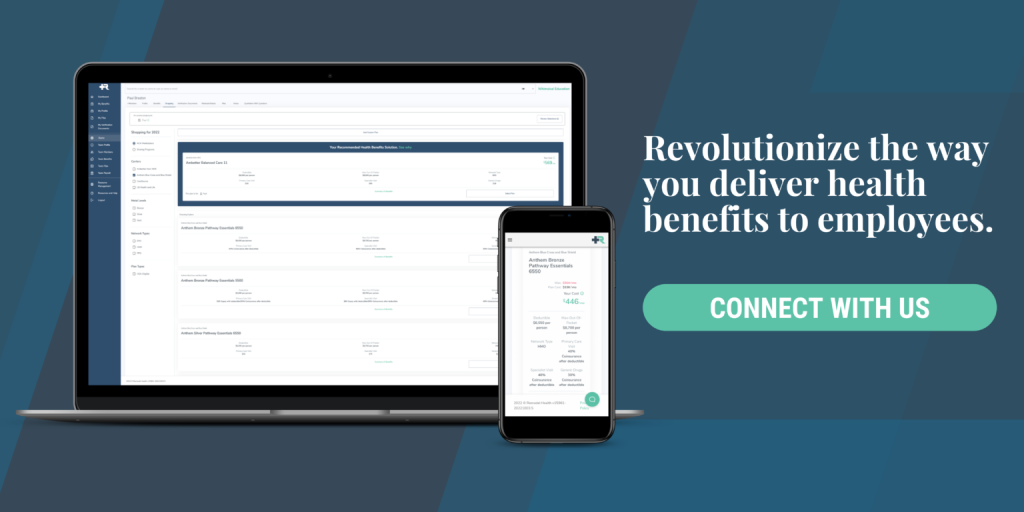
Offering health insurance is not only a vital component of a competitive benefits package, but also a key factor in attracting and retaining top talent.
As an employer, it is essential to carefully consider the various health insurance options available in order to provide the best possible coverage and value for your employees. In this blog post, we’ll explore some of the best employer health insurance options and how to determine which one is the right fit for your organization.
1. Health Maintenance Organizations (HMOs)
HMOs are a popular choice for employers due to their typically lower premium costs and streamlined approach to healthcare. Under an HMO plan, employees select a primary care physician (PCP) who coordinates their healthcare services and provides referrals to specialists within the HMO network. HMOs are best suited for organizations that value cost containment and simplicity, while still providing comprehensive coverage.
2. Preferred Provider Organizations (PPOs)
PPOs offer more flexibility than HMOs, allowing employees to seek care from any provider within the plan’s network without a referral. While out-of-network care is typically covered, employees may face higher out-of-pocket costs. PPOs generally have higher premiums than HMOs, but they are an attractive option for organizations that want to offer their employees greater freedom in choosing healthcare providers.
3. Exclusive Provider Organizations (EPOs)
EPOs are a hybrid of HMOs and PPOs, combining elements of both to provide a more cost-effective and flexible health insurance option. Like HMOs, EPOs require employees to seek care from providers within a specific network, but similar to PPOs, they generally do not require referrals for specialist visits. EPOs are a good option for organizations looking to balance cost control with provider choice and flexibility for their employees.
4. High-Deductible Health Plans (HDHPs) with Health Savings Accounts (HSAs)
HDHPs are health insurance plans that feature higher deductibles and lower monthly premiums. When paired with an HSA, employees can make tax-free contributions to help cover their out-of-pocket medical expenses. This option is ideal for organizations seeking to lower premium costs and empower employees to take more control over their healthcare spending. However, HDHPs may not be the best fit for employees with chronic health conditions or those who require frequent medical care.

5. Point of Service (POS) Plans
POS plans combine aspects of HMOs, PPOs, and EPOs, offering a blend of cost savings and flexibility. Employees designate a primary care physician within the plan’s network, as with HMOs, but they also have the option to see out-of-network providers, albeit with higher out-of-pocket costs, as with PPOs. POS plans can be a good choice for organizations seeking to provide a more comprehensive and flexible health insurance option while still maintaining some cost control.
6. Self-Funded Health Plans
Self-funded health plans, also known as self-insured plans, involve the employer assuming the financial risk associated with providing healthcare benefits to their employees. Instead of paying premiums to an insurance company, employers set aside funds to cover healthcare claims and pay for administrative services to manage the plan. This option can offer significant cost savings for organizations, particularly large employers, but it also comes with greater financial risks and administrative responsibilities.
7. Level-Funded Health Plans
Level-funded health plans are a hybrid option between fully insured and self-funded plans. Employers pay a fixed monthly fee that covers administrative costs, stop-loss insurance, and a portion of expected claims. If the actual claims are lower than expected, the employer may receive a refund at the end of the year. This option can be appealing for small to mid-sized businesses looking to balance cost savings with financial predictability and risk management.
8. Individual Coverage Health Reimbursement Arrangement (ICHRA)
The Individual Coverage Health Reimbursement Arrangement (ICHRA) is a flexible and innovative option for employers to provide health benefits to their workforce. This arrangement allows employers to allocate a pre-determined, tax-free monthly allowance for employees to purchase their own individual health insurance plans. ICHRA caters to the diverse needs of the employees by granting them the freedom to choose insurance plans that best suit their personal health requirements and preferences. As a result, this approach promotes employee satisfaction and retention. Moreover, ICHRA enables employers to control their healthcare spending effectively, by determining the reimbursement amounts without being subject to minimum contribution requirements or caps. By leveraging the ICHRA model, employers can reduce the administrative burden associated with traditional group health plans, while still offering a valuable and customizable health benefit to their employees.
Choosing the best employer health insurance option requires careful consideration of your organization’s unique needs, budget, and employee preferences. By exploring the various options, from traditional HMOs and PPOs to innovative HDHPs and self-funded plans, you can make an informed decision that best supports the health and well-being of your workforce.
Ultimately, providing comprehensive and cost-effective health insurance is an investment in your employees’ well-being and your organization’s long-term success.
Want to take your knowledge of health insurance options to the next level?
A licensed health benefits expert from Remodel Health can help you evaluate these options to determine which would work best for your organization’s unique needs. Let’s chat today!

Important Notice: Remodel Health does not intend to provide specific insurance, legal, or tax advice. Remodel Health always recommends consulting with your own professional representation to properly evaluate the information presented and its appropriate application to your particular situation.
